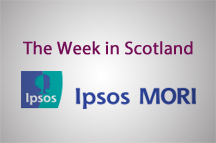Minimum pricing
In an attempt to show that we aren’t completely obsessed with the upcoming referendum (of course we are really), let’s start with the issue of minimum pricing of alcohol and a row that has been brewing for some time now. This week a group of doctors wrote an open letter calling for the legal action to oppose the introduction of a 50p minimum unit price to be dropped, claiming that 60 lives would have been saved if the legislation had already come into force. For their part, opponents of the legislation, led by the Scotch Whisky Association, restated their view that minimum pricing would disproportionately affect the poorest in society and that its implementation would be ‘illegal’ and ‘ineffective.’ Neither side can claim to have public opinion emphatically on their side and there is no sign of last orders being called on this legal battle any time soon.
The great ‘Whodunit’
 And so to the referendum. This week’s big story has been the attempt to uncover the identity of the UK Government Minister who told The Guardian that, contrary to the official line from all three main UK parties, a currency union would actually be negotiable in the event of a ‘Yes’ vote in September. Rumours have abounded all week about the identity of said Minister. George Osborne moved swiftly to stamp on the story but that didn’t stop the ‘Yes’ campaign from claiming that the story had dealt their opponents a ‘demolition blow.’
And so to the referendum. This week’s big story has been the attempt to uncover the identity of the UK Government Minister who told The Guardian that, contrary to the official line from all three main UK parties, a currency union would actually be negotiable in the event of a ‘Yes’ vote in September. Rumours have abounded all week about the identity of said Minister. George Osborne moved swiftly to stamp on the story but that didn’t stop the ‘Yes’ campaign from claiming that the story had dealt their opponents a ‘demolition blow.’
As an issue that comes under the broad umbrella of ‘the economy’ it’s clear that the currency debate is of importance to voters ahead of the referendum. But what’s been striking is that the debate has focused less on the merits of different currency arrangements and more about whether one side is bluffing and bullying and whether the other has a drawn up a ‘Plan B’ if they aren’t. As such, the extent to which recent events will sway undecided voters is likely to centre around who they trust to be telling the truth and being straight, as much as a detailed consideration of the different currency options.
Turnout
One of the key challenges for those of us involved in measuring public opinion in the lead-up to September’s vote is in thinking about what proportion of eligible voters will actually cast a vote and what impact this will have on the outcome.
 Participation in elections has been declining over many years but the referendum is likely to buck that trend, suggesting that many people who would not normally be anywhere near a polling station on the day of an election will be motivated to cast a vote on September 18th. So it was encouraging to read this week that voter registration in Scotland is at record levels with over 4 million of us now on the electoral roll, prompting hope that many of the so-called ‘missing million’, those eligible to vote but who regularly choose not to, will participate in the referendum. Key challenges remain though ahead of September, including registering the quarter of 16 and 17 years olds who remain unconvinced. Then it will all be about getting voters out on the day!
Participation in elections has been declining over many years but the referendum is likely to buck that trend, suggesting that many people who would not normally be anywhere near a polling station on the day of an election will be motivated to cast a vote on September 18th. So it was encouraging to read this week that voter registration in Scotland is at record levels with over 4 million of us now on the electoral roll, prompting hope that many of the so-called ‘missing million’, those eligible to vote but who regularly choose not to, will participate in the referendum. Key challenges remain though ahead of September, including registering the quarter of 16 and 17 years olds who remain unconvinced. Then it will all be about getting voters out on the day!
Mark Diffley
Director, Ipsos MORI Scotland












